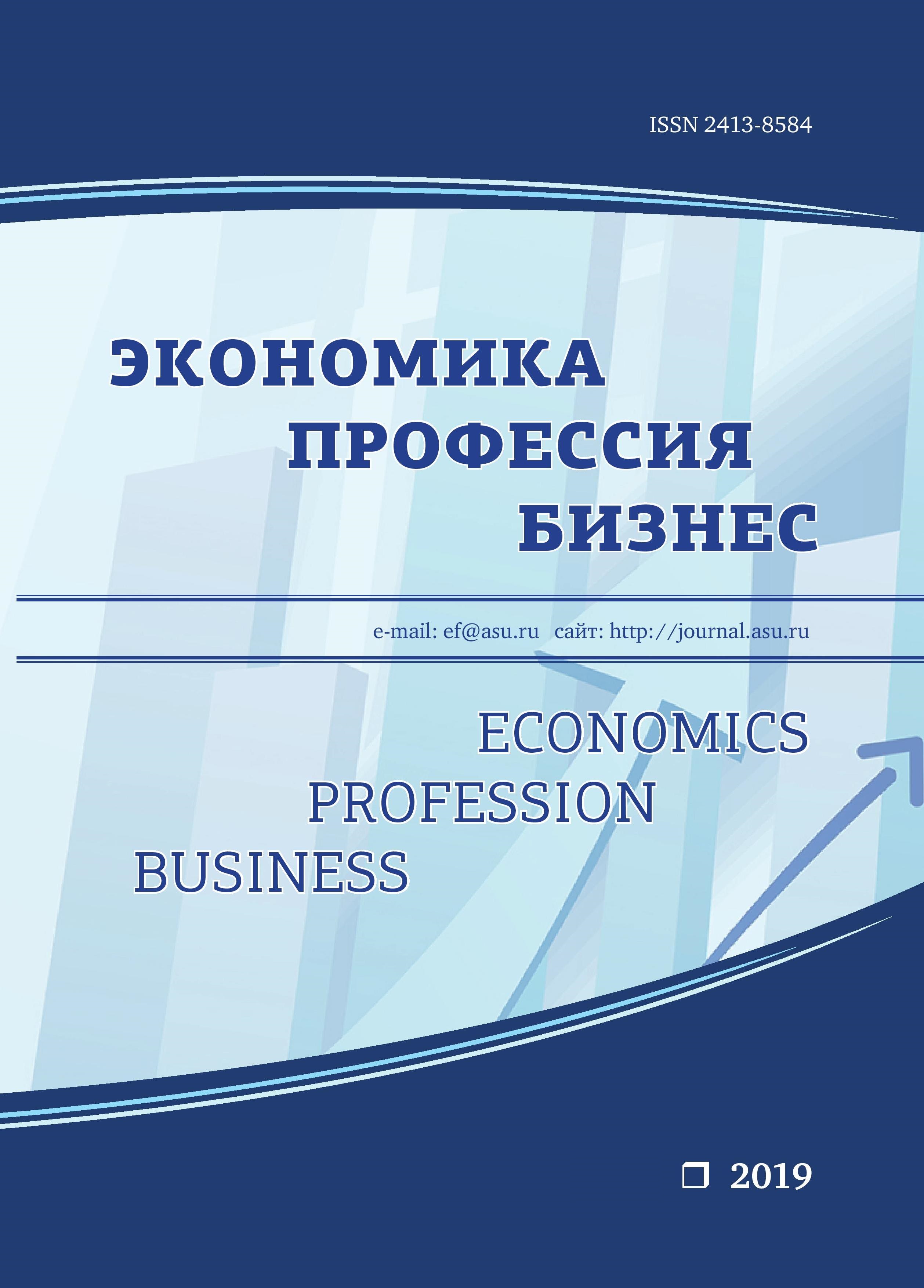PERSONNEL MANAGEMENT: THEORY AND METHODOLOGY
Abstract
The article is devoted to the study of the theoretical platform of the personnel management system. One of the key problems remains the lack of unified methodological approaches to personnel management, which needs innovations, where workforce planning should be formed according to the company's development strategy, and additional professional training and retraining support innovation. The methodological base of the study includes the theoretical provisions of personal management. The theoretical and practical significance of the study is to substantiate the need to improve the personnel management system based on innovations in social and labor relations. System approaches covering the functionality of HR-service in a particular company and the workload of employees of this service are highlighted. It is proved that it is advisable not only to stimulate organizational behavior and encourage high-performance work, but also to motivate employees to maximize the implementation of human capital, including creativity to achieve goals. Identify and describe the direction of introduction of innovations in personnel work: the first is staff development and management of business career; the position of the employer, which involves first invest in employee knowledge and then to profit at the expense of increased loyalty; the second is the alignment of the model of material employee compensation for work performed.
Downloads
Metrics
References
Журавлев П. В. Мировой опыт в управлении персоналом: монография. Екатеринбург: Изд-во Рос. эконом. академии, 2016. С. 128-135.
Кибанов А. Я. Управление персоналом в России: новые функции и новое в функциях: монография / под ред. проф. И. Б. Дураковой. М: ИНФРА-М, 2017. С. 242.
Молочников Н. Р., Пономаренко Е. Е. Трудовой потенциал в системе управления предприятием: проблемы и практика реализации в условиях инновационной экономики // Россия: тенденции и перспективы развития. Ежегодник / Институт научной информации по общественным наукам Российской академии наук. 2018. С. 305-307.
Шекшня С. В. Управление персоналом современной организации: учебно-практ. пособие. М.: Интел-Синтез, 2018. С. 85-90.
Lloyd H., Ogbonna E. Strategic human resource management, market orientation, and organizational performance // Journal of Business Reseach. 2018. P. 51-52.
Popova D. A. Development of an algorithm for making management decisions based on situational analysis // Juvenis scientia, vol. 12, 2018. P. 20-22.
Shahnawaz Saqib. Impact of Tangible and Intangible Rewardson Organizational Commitment: Evidence from the Textile Sector of Pakistan // American Journal of Industrial and Business Management. 2015. Vol. 15. P. 138-147.
REFERENCES
Babkina L. N. Forecasting of labor productivity as a condition of production efficiency growth // Economics of sustainable development. 2019. No. 1 (37). Pp. 260-262.
ZHuravlev P. V. World experience in personnel management. Monograph. Ed-in Grew. steward. Academy, Ekaterinburg, 2016. Pp. 128-135.
Kibanov A. YA. Personnel management in Russia: new functions and new functions: monograph / under the editorship of Professor I. B. Durakova. M.: INFRA-M, 2017. Pp. 242.
Molochnikov N. R., Ponomarenko E. E. Labor potential in the enterprise management system: problems and practice of implementation in the conditions of innovative economy // Russia: trends and prospects Yearbook. Institute of scientific information on social Sciences of the Russian Academy of Sciences. 2018. Pp. 305-307.
SHekshnya S. V. Personnel management of the modern organization: educational practice. benefit. M.: Intel-Synthesis, 2018. Pp. 85-90.
Lloyd H., Ogbonna E. Strategic human resource management, market orientation, and organizational performance. Journal of Business Reseach, 2018. P. 51-52.
Popova D. A. Development of an algorithm for making management decisions based on situational analysis. Juvenis scientia, vol. 12, 2018. P. 20-22.
Shahnawaz Saqib. Impact of Tangible and Intangible Rewardson Organizational Commitment: Evidence from the Textile Sector of Pakistan. American Journal of Industrial and Business Management, vol.15, 2015. P. 138147.
Economics Profession Business is a golden publisher, as we allow self-archiving, but most importantly we are fully transparent about your rights.
Authors may present and discuss their findings ahead of publication: at biological or scientific conferences, on preprint servers, in public databases, and in blogs, wikis, tweets, and other informal communication channels.
Economics Profession Business (EPB) allows authors to deposit manuscripts (currently under review or those for intended submission to EPB) in non-commercial, pre-print servers such as ArXiv.
Authors who publish with this journal agree to the following terms:
- Authors retain copyright and grant the journal right of first publication with the work simultaneously licensed under a Creative Commons Attribution License that allows others to share the work with an acknowledgement of the work's authorship and initial publication in this journal.
- Authors are able to enter into separate, additional contractual arrangements for the non-exclusive distribution of the journal's published version of the work (e.g., post it to an institutional repository or publish it in a book), with an acknowledgement of its initial publication in this journal.
- Authors are permitted and encouraged to post their work online (e.g., in institutional repositories or on their website) prior to and during the submission process, as it can lead to productive exchanges, as well as earlier and greater citation of published work (See The Effect of Open Access).









